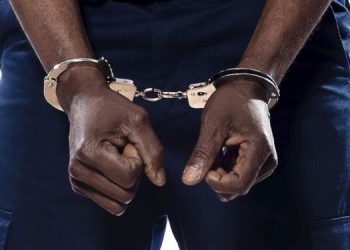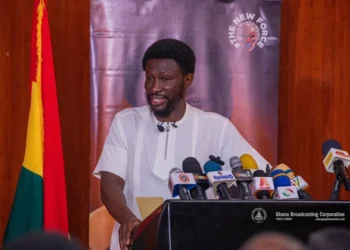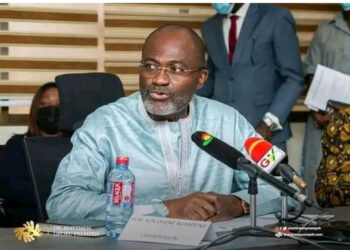A retired lecturer, Professor Samuel Sowah Boye, has appeared before an Accra Circuit Court alongside Nii Armah Sogblah IV, Chief of Haatso, over an alleged fraudulent land transaction.
Two other accomplices, identified as Nii Tetteh Kwao I and another only named Elder, are currently at large.
The four are alleged to have conspired to sell a state-owned parcel of land located in Haatso to a businesswoman for $90,000 in 2009, despite not having legal title to the property.
Prof. Boye and Nii Sogblah IV have been jointly charged with conspiracy to commit crime and fraudulent transaction.
Both pleaded not guilty.
The court, presided over by Mr. Isaac Addo, admitted Prof. Boye to bail in the sum of GHC1 million with one surety.
Nii Sogblah IV had previously been granted bail.
Prosecuting, Assistant Superintendent of Police (ASP) Seth Frimpong told the court that the complainant, Eugenia Abbey, a resident of Accra, was approached by Prof. Boye in 2009 with an offer to sell two parcels of land at Haatso.
ASP Frimpong said Abbey showed interest in acquiring the land and agreed on $90,000 for the lot.
He said that although the money was paid to Prof. Boye, no documentation covering the land was issued to Abbey.
She subsequently engaged a surveyor to prepare a site plan and conducted an official search at the Lands Commission.
The search revealed that the land was not registered in Prof. Boye’s name.
The matter was reported to the police on August 14, 2023, leading to the arrest of Prof. Boye and Nii Sogblah IV.
ASP Frimpong stated that Prof. Boye admitted having collected the money, and investigations revealed that he acted with the three other accused individuals.
He told the court that Prof. Boye submitted a fictitious indenture dated August 18, 2015, made in the name of the Abbey covering 0.33 acre of land at Haatso.
Investigations revealed that the indenture was executed by Nii Sogblah IV and two of the other accused persons, who also served as witnesses.
It was also established that the land in question had been acquired under an Executive Instrument on July 3, 1973, for the Ghana Atomic Energy Commission.
“In effect, the land is state land and therefore the accused persons had no authority over the land to grant same,” the prosecution said.
According to ASP Frimpong, “The accused persons knew at all material times during the transaction that the land belongs to the Ghana Atomic Energy Commission, yet they went ahead and collected money from the complainant and sold same to her.”
Source: GNA










Discussion about this post